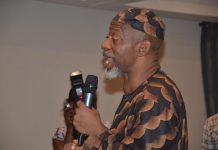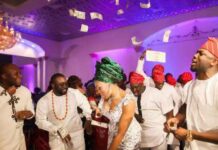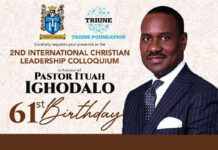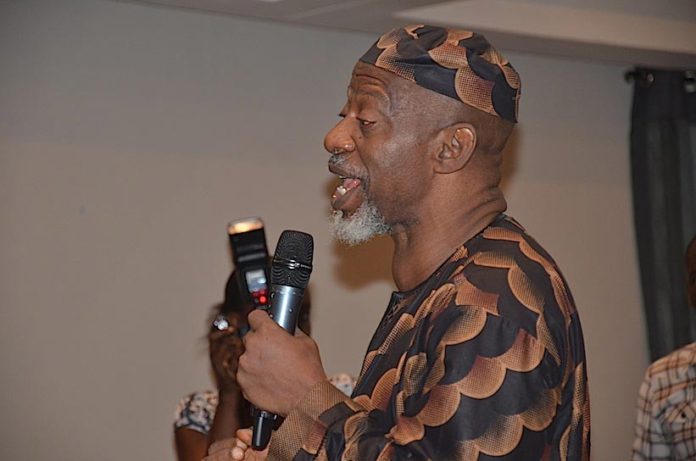A committee of writers, critics and culture enthusiasts organised a large conference and Festival, laid out in 19 sections, for Odia Ofeimun. The poet, playwright, essayist, drama producer and publisher, turned 70 on March 16, 2020, some 40 years after his controversial debut collection arrived the bookshelves.
“The conference takes as its focus, the entire gamut of Odia Ofeimun’s creative, critical, journalistic and intellectual writings”, says Wumi Raji, associate professor of drama at the Obafemi Awolowo University, Ile Ife, Nigeria, Convener of the Feast.
The group of organisers assembled a stellar cast of speakers. The keynote address was delivered by Biodun Jeyifo, retired Professor of Comparative Literature and African and African American Studies, Harvard University, USA. The theme of the gabfest was ‘Taking Nigeria Seriously’, which derives from the title of one of the celebrant’s extended essays.
Ofeimun shot to public acclaim in 1980 when Longman published his first collection, The Poet Lied, which was more or less a fierce denunciation of the position of J.P. Clark, then already a highly revered poet, in the collection Casualties. Not a few members of the literary community had been shocked that Clark had “adopted a detached air of a scientist at his laboratory” in describing the fate of the fallen in the Nigerian civil war, wrote Femi Osofisan, the country’s top playwright, in JP Clark, A Voyage, his biography of Clark. “The anger and disillusionment of the reading public”, to Casualties, “was voiced by this young, then unknown idealist poet, just coming up to the University from the factory floors in Benin”, Osofisan wrote.
The Poet Lied suffered something of a still birth, Ofeimun told Onwuchekwa Jemie in The Guardian, according to A Voyage. “It was distributed in England, but never in Nigeria, as Clark had claimed that the title poem referred to him in a derogatory way. He threatened to sue Longman. Intimidated, Longman refused to sell the book in Nigeria, but they continued to sell abroad”.
That’s how Odia (he’s one of those people known only by his first name), emerged, a potent force in Nigeria’s literary firmament.
Osofisan’s JP Clark, A Voyage contrasts Clark’s treatment of Ofemun’s debut collection with “the enthusiastic encouragement that had been lavished on the younger poet by Achebe and Soyinka, who had both published him in Okike (Volume 1, No.3, 1972) and Poems of Black Africa (1975).
The conference convener, Raji writes of Ofeimun:
“For more than four decades now, he has exerted a phenomenal presence in the Nigerian cultural, creative, intellectual and political space. He served as Private Secretary to Chief Obafemi Awolowo, the late Nigerian nationalist and politician between 1978 and 1981, was a member of the editorial board of The Guardian from 1983 to 1988, Chairman of the Editorial Board of The News, Tempo and AM News from 1993 to 1999, and President of the Association of Nigerian Authors (ANA), from 1993 to 1997. His Hornbill House of Culture represents a platform which he has continued to use to execute his multi-dimensional activities including writing, dance-drama production, book publishing, cultural promotion and politics and political interventions. He has close to forty (40) published books to his name, and they include volumes of poetry, collections of critical essays, anthologies of cultural and political interventions, and compilations of journalistic writings.”
In 2010, Odia Ofeimun won the Fonlon Nichols award for excellence in writing and human rights activism. He is an exemplary man in many respects and his contributions to Nigeria letters and ideas as well as public life make him richly deserving of such an honour.



























